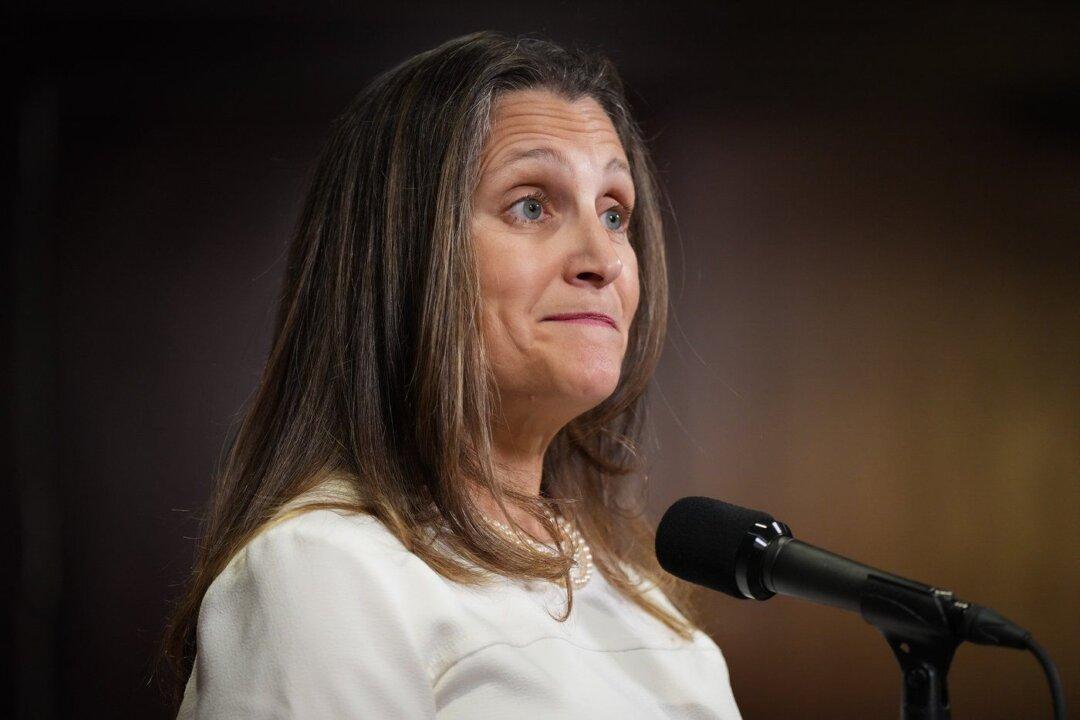The federal government considered requiring alleged Freedom Convoy supporters who had their bank accounts frozen to report to police before being allowed to regain account access, said the minutes of a confidential cabinet meeting that were marked “secret.”
Minutes from the closed Liberal cabinet meeting on Feb. 21 show that Deputy Prime Minister and Finance Minister Chrystia Freeland had spoken with “chief executive officers at the major banks” about beginning the process of unfreezing individuals’ bank accounts that had been frozen under the Emergencies Act.





